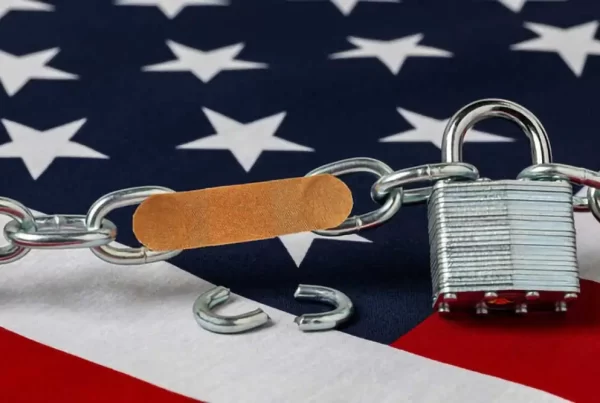Congress is currently trying to reauthorize the Violence Against Women Act (VAWA) this week.
This Act, as it stands, allows battered spouses to petition for their own legal status, should they be in an extremely abusive relationship where their U.S. citizen or permanent resident spouse has isolated them from friends and family, beaten them physically, verbally threatened them with deportation, sexually forced themselves onto them, psychologically demeaned them, and controlled all their marital finances. It is essentially a romantic and mutual relationship that turns into a slave-master relationship. The lack of status makes an awfully abusive relationship worse because the abusive spouse knows he can use the immigrant spouse’s lack of a status as a tool to coerce, manipulate, and control.
It is not uncommon to hear an abuser tell their immigrant spouse, “If you call the police, they will never believe you because you are illegal – they will deport you and you will never see your children ever again.” Even more frightening for victims involve instances that after they have done the right thing by calling the police and watching the abuser get arrested, they experience the agony of watching their abusive spouse get bonded out, to come back and threaten them. They are told that the police can do absolutely nothing to protect them from the violence, and that more harm will be done if they cooperate with law enforcement and the district attorney. Where can a battered spouse turn to for help? They have no place to live and no place to work, because the abusive spouse has taken their documentation and prevented them from working legally by refusing to petition for the battered spouse. The victim has furthermore been isolated by the abuser from knowing anyone who could help. This is why VAWA was passed – to help those battered spouses in need.
This Act also authorizes immigrants who are victims of crime to receive a “U Visa” and eventually permanent residency, if they cooperate with law enforcement authorities as the victims of violent and qualifying crimes, and if they suffer substantial physical or psychological harm. My clients have in the past ranged from victims of domestic violence to survivors of attempted homicide. Congress believed it was important for law enforcement authorities to get all the help they needed, because immigrants are often afraid of cooperatng in a climate of deportation-only policies. These regulations encourage the immigrant community to come forth and cooperate with police, prosecutors, and judges, without fear of reprisal for their status. It is a win-win for the criminal to be investigated and prosecuted, and the victim to get temporary legal status on a path to permanent residency.
Cue in the proposed Republican House of Representative bill that was introduced recently (HR4970, Rep. Adams – R-FL). If passed, this bill would have a blizzard-iculously chilling effect on victims of domestic violence and crimes. In essence, the bill makes it nearly impossibly for a battered spouse to report abuse or a victim of a crime to obtain a U visa.
First, it would make it extremely difficult for abused aliens to self-petition for immigration relief. Government adjudicators will be able to inform the abuser of a battered spouse that they have been accused. Knowing this, battered spouses will be less likely to come forth and break the cycle of domestic violence. Does anyone envision the abuser saying, “Oh yes, Mr. US Citizenship and Immigration Services officer, I did beat my wife, threaten to deport her, and have repeatedly kept her from working by not filing for her documentation because I want a housewife who serves me?” Common sense dictates that the abusive spouse will not take responsibility for their abusive behavior, and will instead turn around and threaten, harm, and possibly kill their battered spouse for reporting them. Not to mention, an abusive spouse will be given more power to coerce their battered spouse and tell them, “if you do not stop applying for VAWA, I will tell them that you married me for the papers.” Do we really need to give abusive spouses more power? This is a serious flaw in this bill.
Second, it would make U Visas more difficult to obtain. The victim would have to report a crime to the police within 60 days, cooperate on an active case with law enforcement, would have to identify the perpetrator or have information regarding the identity of the perpetrator, and would be out of luck if the statute of limitations lapsed on the crime embodied in the abuse. The bill would limit the benefit to those cases where the police have a perfect case to investigate and prosecute a suspect in custody within a certain time period.
In all seriousness, let’s get real. The world does not reflect what we watch on CSI and crimes do not get solved within an hour. Cases take time to solve, for perpetrators to be identified, for victims to come forward, and prosecutions to be undertaken. Many of them are unsuccessful. Victims are often afraid and delay in reporting a crime. Police have limited resources and inactivate a case, though the victim was willing to cooperate fully. Perpetrators are not always identified in the dark. I have a client who was shot in the head from behind in a drive-by shooting and survived. His brother was fatally shot besides him. He would be denied a U Visa under this new bill. This bill will only lead to victims not reporting crimes and not being cooperative – the opposite of what we should be striving for to ensure safe communities.
The bill also states that the U Visa immigrant would not be able to seek permanent residency in four years. At this point, they will no longer have any status and likely be forwarded to removal proceedings for deportation. This does not encourage cooperation with law enforcement – in fact, it will hinder it. I do not foresee many victims saying, “I want to stay in the United States for four more years, so I can get deported along with my children in four years.”
Why then push to make it harder for victims to obtain these benefits? My educated guess is that there is a misguided belief that there is too much fraud in immigrants who seek these benefits. In my opinion, there is very little evidence to support this assertion to, so as to raise the standard to obtain these benefits and to limit these benefits. The standard to obtain a VAWA benefit and a U Visa is already high enough and require vast amounts of evidence, when often there is little.
Victims of violence deserve compassion, not suspicion. This bill in the House of Representative only makes a difficult and tragic situation worse for thousands of victims. I encourage you to take action and notify your representative that the system of adjudicating VAWA petitions and U Visas was already working, albeit not perfectly, and to vote against the House version of the bill. If you do not know who your representative is, please go to http://www.house.gov/representatives/find/. If you would like to send a template email to your representative against the bill, please go to http://capwiz.com/aila2/issues/alert/?alertid=61277726.





This comment has been removed by a blog administrator.